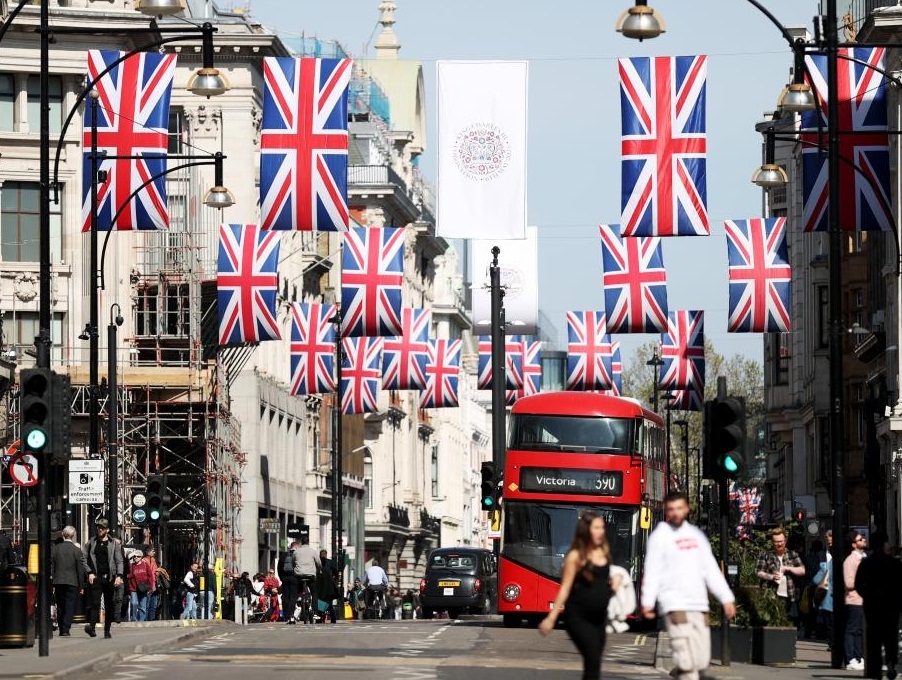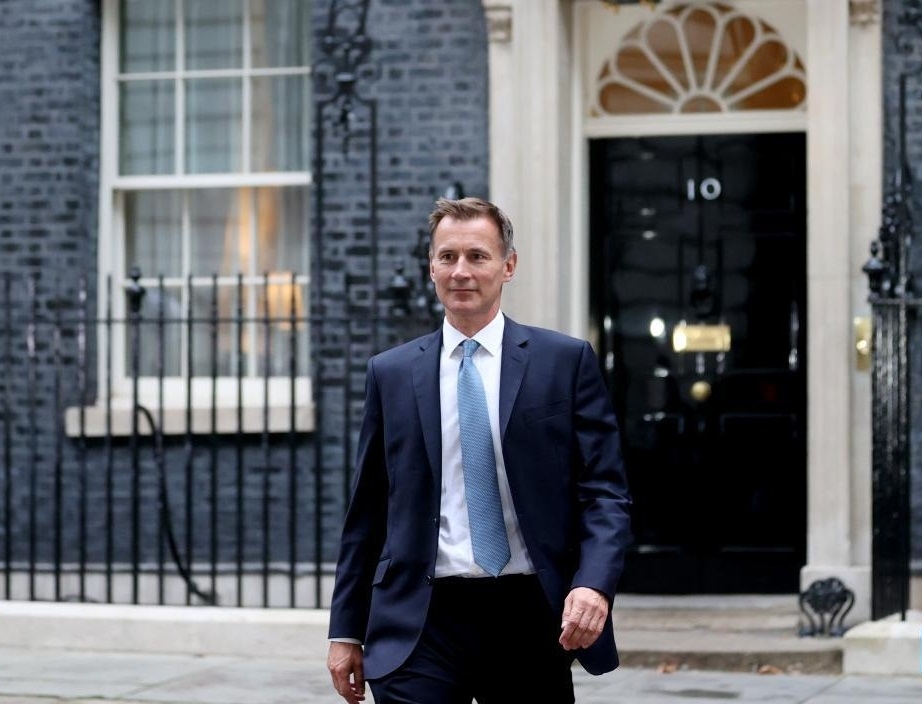
The economy is stuck in a lacklustre state as it struggles with high borrowing costs and the legacy of the worst inflationary upsurge for a generation
The UK economy shrank slightly in the third quarter, according to revised figures that highlight the country’s struggle to shake off its low-growth performance and raise the risk of a technical recession.
The data was published at the end of a year in which Prime Minister Rishi Sunak promised to “grow the economy”. Of his five pledges in January, only a vow to halve inflation has so far been met.
The Office for National Statistics said on Friday that gross domestic product fell by 0.1 per cent in the three months to September, a downward revision from previous estimates of zero growth.
The economy flatlined in the second quarter — lower than its earlier estimate of a 0.2 per cent increase.
The weak performance will further raise pressure on the Bank of England to start easing monetary policy, especially with headline inflation now at 3.9 per cent, the lowest since September 2021.
The UK economy is stuck in a lacklustre state as it struggles with high borrowing costs and the legacy of the worst inflationary upsurge for a generation.
While the prospect of further falls in inflation in 2024 could alleviate some of the pressure on households, economists still expect weak investment and low productivity growth to drag on the country’s performance.

Output fell another 0.3 per cent in October compared with September, according to official figures released earlier this month, although a separate report on Friday suggested there has been a 1.3 per cent jump in retail sales in November ahead of the key Christmas shopping period.
Further declines in overall activity would increase concerns that the UK could be heading into a technical recession, with two consecutive quarters of falling GDP.
“The national accounts release indicated an economy which is progressing slower than was first reported, making a winter recession far more likely,” said Ellie Henderson, an economist at Investec.
The figures put UK output at 1.4 per cent above its pre-pandemic level, meaning the country has lagged behind all its G7 partners since the final quarter of 2019, with the exception of Germany, with just 0.3 per cent growth.
The US had been the strongest performer of the group of advanced economies over the period, the ONS said, with GDP up 7.4 per cent compared with the final quarter of 2019.
Bank of England projections released in November forecast near-zero growth through next year, even as the worst of the recent bout of inflation subsides.
The third-quarter GDP figures were dragged lower by weak business investment and personal spending numbers, with real household expenditure sinking 0.5 per cent and the savings ratio going up. Business investment dropped 3.2 per cent, slightly less than previously estimated.
The ONS reported a 0.2 per cent fall in output from the services sector in the three months to September, which offset a 0.4 per cent rise in construction output and slightly higher production output.

Chancellor Jeremy Hunt played down the tepid numbers, saying Britain’s medium-term outlook was “far more optimistic than these numbers suggest”.
He added: “We’ve seen inflation fall again this week, and the [Office for Budget Responsibility] expects the measures in the Autumn Statement, including the largest business tax cut in modern British history and tax cuts for 29mn working people, will deliver the largest boost to potential growth on record.”
But Labour’s Rachel Reeves, shadow chancellor, said: “Rishi Sunak is a prime minister whose legacy is one of failure. He failed to beat Liz Truss, he failed to cut waiting lists, he failed to stop the boats and now he has failed to grow the economy.”
In January Sunak made five pledges: to halve inflation, grow the economy, cut debt, stop the boats, and cut hospital waiting lists, but only the first has been achieved.
This week the prime minister was reprimanded by the UK Statistics Authority for claiming “debt is falling” when in fact national debt as a share of national income is rising.
Hospital waiting lists have risen since January while small boats crossings have continued in 2023, albeit they are down by about one-third. Sunak is planning a speech next month to set out his priorities for 2024, which he has confirmed will be an election year.
Hunt said the outlook for 2024 was improving and said the country needed to “throw off our pessimism and declinism about the UK economy”. Hunt also raised the prospect of the BoE cutting interest rates.
ALSO READ: UK, Switzerland ink post-Brexit deal


